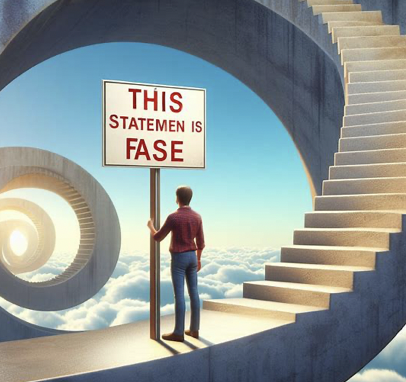The Grandfather Paradox is a thought experiment in philosophy and quantum physics that explores the potential consequences of time travel.
It poses a simple question: What would happen if you traveled back in time and killed your own grandfather before he had any children?
Table of Contents
The Origin of the Grandfather Paradox
The term “Grandfather Paradox” was coined by science fiction writer René Barjavel in his 1943 book “Le Voyageur Imprudent” (The Imprudent Traveller).
However, the concept itself has been a topic of discussion among philosophers, scientists, and fiction writers for much longer.
The Paradox Explained
The Grandfather Paradox is a logical contradiction that arises from the idea of changing the past.
If you were to travel back in time and kill your grandfather before he had any children, then your parent (and by extension, you) would never have been born.
But if you were never born, then how could you have traveled back in time to kill your grandfather in the first place?
Implications of the Grandfather Paradox
The Grandfather Paradox raises several intriguing questions about the nature of time and reality.
It challenges our understanding of cause and effect, and suggests that time might not be as linear as we perceive it to be.
Resolving the Paradox
There are several theories that attempt to resolve the Grandfather Paradox.
These are the main three logical responses to the Grandfather Paradox:
- Some suggest that time travel is simply impossible.
- Others propose that any changes made in the past would create a new, parallel timeline.
- Still others argue that the universe would somehow prevent any actions that could lead to a paradox.
FAQs on Grandfather Paradox
1. What is the Grandfather Paradox?
The Grandfather Paradox is a thought experiment that explores the potential consequences of time travel.
It asks what would happen if you traveled back in time and killed your own grandfather before he had any children.
2. Who coined the term “Grandfather Paradox”?
The term “Grandfather Paradox” was coined by science fiction writer René Barjavel in his 1943 book “Le Voyageur Imprudent”.
3. What does the Grandfather Paradox suggest about the nature of time?
The Grandfather Paradox suggests that time might not be as linear as we perceive it to be.
It challenges our understanding of cause and effect, and raises questions about the possibility of changing the past.
4. How can the Grandfather Paradox be resolved?
There are several theories that attempt to resolve the Grandfather Paradox.
Some suggest that time travel is simply impossible, while others propose that any changes made in the past would create a new, parallel timeline.
Still others argue that the universe would somehow prevent any actions that could lead to a paradox.
5. What are some examples of the Grandfather Paradox in popular culture?
The Grandfather Paradox has been explored in many works of science fiction, including the “Back to the Future” movies, the “Doctor Who” TV series, and the novel “The Time Machine” by H.G. Wells.
Summary – Grandfather Paradox
The Grandfather Paradox is a thought experiment that explores the potential consequences of time travel.
It poses a logical contradiction: if you were to travel back in time and kill your own grandfather before he had any children, then you would never have been born, and thus could not have traveled back in time to kill your grandfather.
This paradox challenges our understanding of time and causality, and has been a topic of discussion among philosophers, scientists, and fiction writers for many years.
Related

